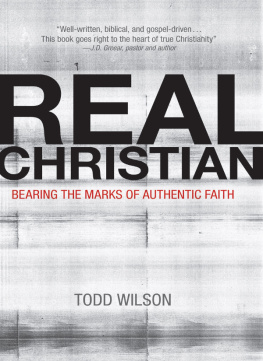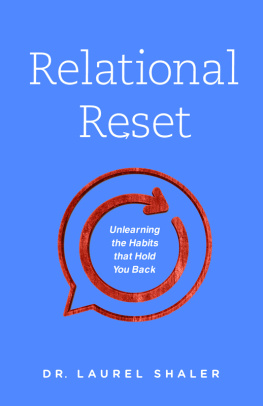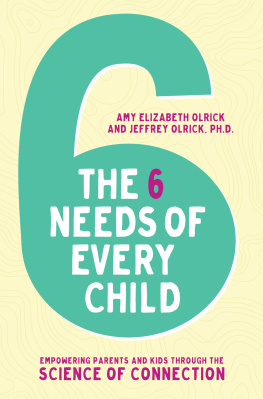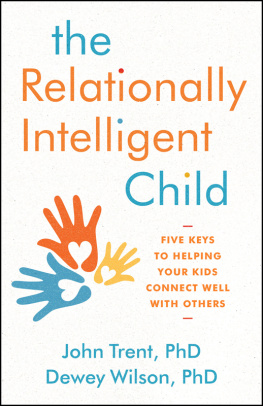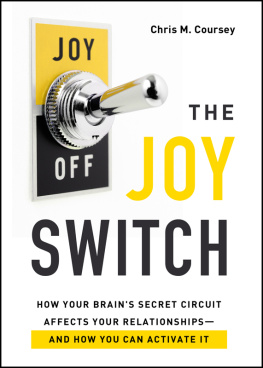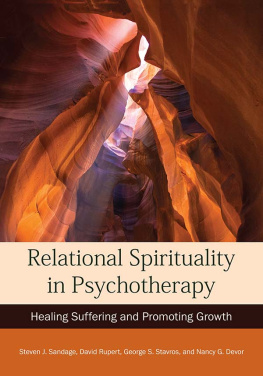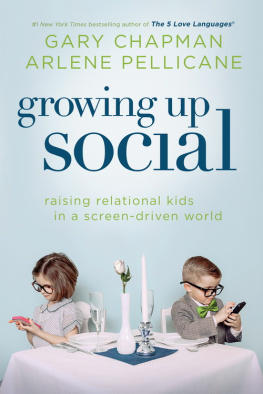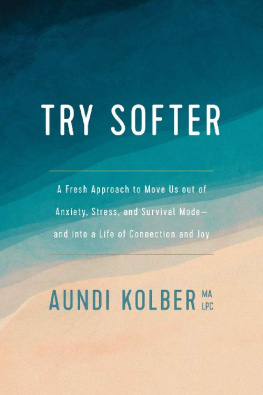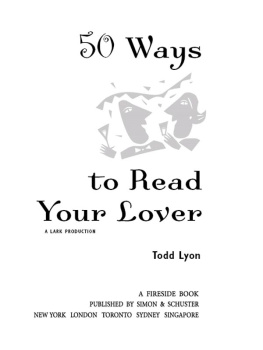Sommaire
Pagination de l'dition papier
Guide
InterVarsity Press
P.O. Box 1400, Downers Grove, IL 60515-1426
ivpress.com
email@ivpress.com
2022 by Todd W. Hall
All rights reserved. No part of this book may be reproduced in any form without written permission from InterVarsity Press.
InterVarsity Press is a resource publishing division of InterVarsity Christian Fellowship/USA. For information, visit intervarsity.org.
Unless otherwise indicated, all Scripture quotations are taken from the Holy Bible, New Living Translation, copyright 1996, 2004, 2007, 2013. Used by permission of Tyndale House Publishers, Inc., Carol Stream, Illinois 60188. All rights reserved.
While any stories in this book are true, all names and identifying information have been changed, and in some cases elements from multiple clients have been combined, in order to protect the privacy of individuals.
Published in association with The Denzel Agency, www.denzelagency.com.
Portions of include content adapted from chapters 5 and 8 of Relational Spirituality by Todd W. Hall with M. Elizabeth Lewis Hall. 2021 by Todd W. Hall and Miriam Elizabeth Lewis Hall. Used by permission of InterVarsity Press, Downers Grove, IL.
The publisher cannot verify the accuracy or functionality of website URLs used in this book beyond the date of publication.
Cover design and image composite: David Fassett
Images: paper texture: 04 TGTS-Fibre-Board, True Grit Texture Supply
geometric design pattern: 826735872, Tomiganka / iStock / Getty Images Plus
ISBN 978-1-5140-0262-9 (digital)
ISBN 978-1-5140-0261-2 (print)
This digital document has been produced by Nord Compo.
I dedicate this book to my wife, Liz,
who has selflessly helped me, in countless ways,
to grow toward living a connected life.
Foreword
Curt Thompson, MD
THIS NAGGING SENSE OF EMPTINESS. If ever there were five words that distill our current moments travail, here we have them. If we pull back the curtain to reveal what is behind the burden of our souls, be that the violence on the world stage; the traumas that visit us in our families, schools, and churches; or the unspoken torment swirling in the privacy of our own minds; we will see that the stage on which it all performs is indeed this nagging sense of emptinessemptiness that itself is rooted in the malignancy of our profound disconnection. Disconnection within and between us has reached its own pandemic proportions, and we are in dire straits, desperately in need of wisdom and guidance to find our way.
Thanks be to God, with The Connected Life Todd Hall delivers for us not only a thoughtful, comprehensive understanding of our problem, but also the hope to be found in the biblical narrative as he deftly interweaves it with insights from the fields of neuroscience, psychology, and theology. For indeed, disconnectionas well as its repair and healingis something that Todd knows about in his bones, and from which he has emerged with good news that we very much need to hear.
When I was first introduced to Dr. Hall and his work, I discovered that here was someone whose giftings were not limited to those of a researcher and teacher of the domains of psychology and Christian spirituality. He is no mere distant observer of these fundamental features of what it means to be human; rather, he is an active and direct participant in the hard work of the life of the soul. Without that, he would be unable to offer you the treasure you hold in your hands. As you will see, there is no stretch of the painful journey of which he speaksfrom wounding and isolation to the hope and healing of communitythat he has not traveled. Beyond the boundless trove of information about the intersecting fields of neuroscience and spiritual development in which you will soon find yourself immersed, you also will be in conversation with someone who clearly loves those for whom he has written this book. For surely, within the pages you are about to turn, it is as much Todds kindness as it is his wisdom that will persuade you not only to read these words but to put them into action.
As a psychiatrist working at the intersection of interpersonal neurobiology and Christian spiritual formation, my primary task is to help people tell their stories more truly. This includes walking with them not only as they develop an understanding of what happened to them but also as they imagine a vision for how they will live their lives with confidence and hope in the future. With The Connected Life, Todd fluidly and fluently offers us a long-awaited, beautiful rendition for how we can develop that understanding of what has happened to us as well as imagine a vision for transformation in our lives.
From his exploration of our connection crisis, to the neuroscience of relationships and attachment research, and on to his compelling stories of love, deep growth, suffering, and belonging, Todd invites you on a journey that is in no way a simple collection of abstract ideasno. This is about authentic, embodied change in real time and space. Our time. Our space. Hope and healing for our disconnection.
If ever you have questioned if connection were ever again possible, this book answers with a resounding yes! As such, I commend it to you with confidence in Dr. Hall as our guide and in you as his reader. Take your time. You will need it, for the repair of our cultural and personal ruptures of disconnection will take much longer than we would want. But Jesus is not worried. He is too busy being about the hard work of connectionconnection that is a hallmark of his kingdom that is here and is surely coming.
Introduction
The Power of Loving Connection
AS FAR BACK as I can remember, my mom suffered from depression and several other psychological disorders. Throughout the course of my moms life she became relationally disconnected and more physically and emotionally unhealthyat times even suicidal. This impaired the attachment bond she developed with my sister and me. All this meant that my mom wasnt very emotionally available while I was growing up.
The summer after I finished the fourth grade my mom left our family, and my parents later divorced. I saw her periodically, but she wasnt very involved in my life after that point. This caused a lot of pain and confusion for a nine-year-old boy.
Mirroring a larger US trend, a growing number of families in the 1970s faced a similar situation. I, like most of my friends, grew up in a single-parent family. I didnt know the term back then, but I was a latchkey kid. I rode my sky-blue ten speed bike to school and back, and let myself into an empty house after school. Also reflecting a powerful US trend in the 1970s, my family wasnt connected to a church or any community groups, and we didnt live near any extended family. Rather than sharing life with extended family and friends, evenings were filled with an increasing amount of TV-watching. I dont remember the family interacting around the dinner table, but I do remember watching MASH with my parents in the fourth grade. For years after my childhood, I felt a sense disconnection from family, friends, and myself.


